“Contaminazioni“, the section dedicated to people and aspects apparently far from our field of study and comparison, once again features an interview with a theater professional. We are convinced that there is much in common between museums and theater, so much so that we think of theater as a museum, a dimension through which to draw inspiration for our lives.
By Network Museum
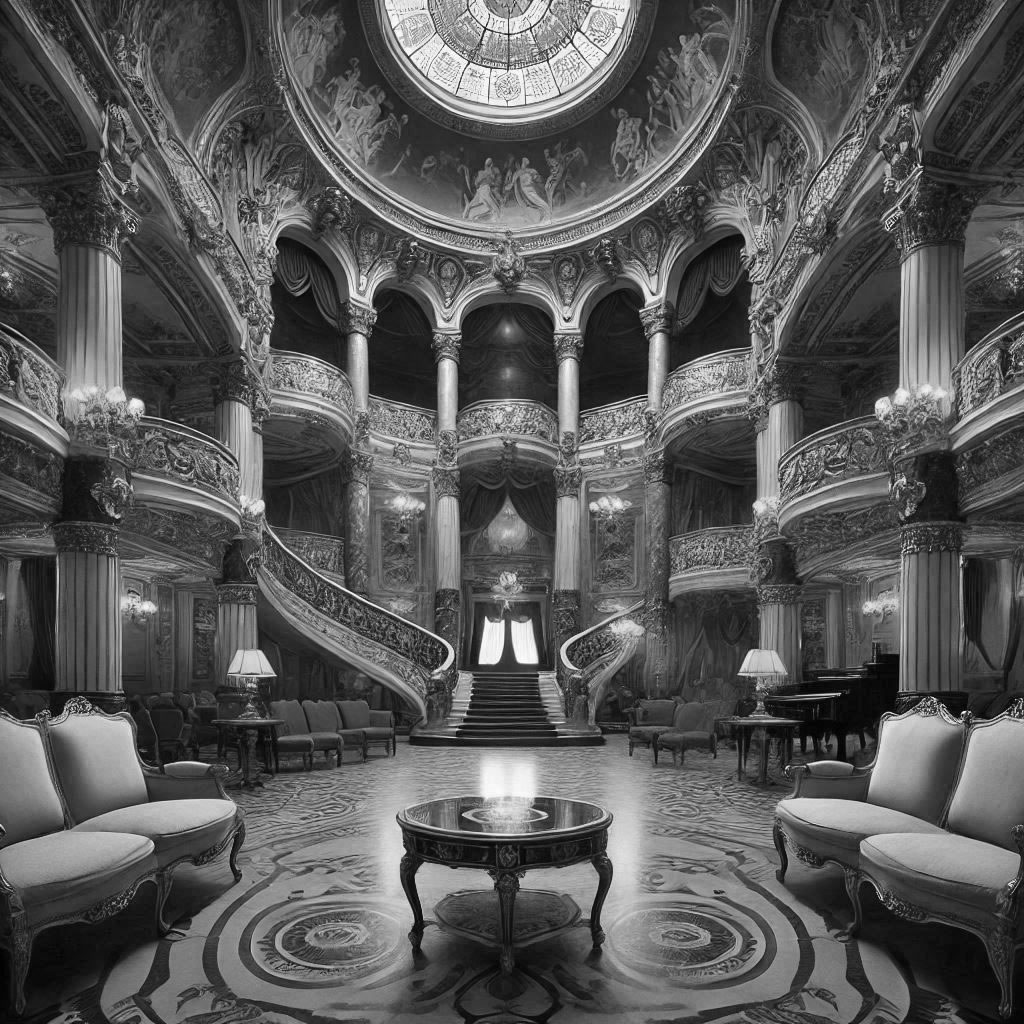
Celebration is a fundamental aspect of our lives. The term derives from the Latin ‘celebratio,’ which in turn comes from the verb ‘celebrare,’ meaning ‘to frequent in large numbers,’ ‘to honor,’ ‘to celebrate.’ This can be related to another Latin term, ‘celeber,’ which means ‘crowded,’ ‘renowned.’ It’s interesting how this simple pseudo-exegetical reasoning highlights one of the peculiar characteristics of our species’ way of communicating: reaching and sharing with as many people as possible according to a shared ritual scheme.
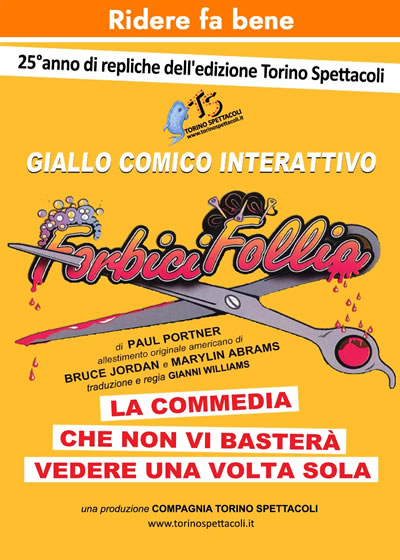
We can divide the community into twelve tribes or highlight the ‘likes’ at the bottom of a text posted on a ‘social’ platform, but the goal and the effect do not change. Already, the magician Silvan, at the beginning of his manual for children, stated many years ago that ‘Knowing how to perform a magic trick is a lot, but knowing how to present it is everything!’ (m.a.r. – uncertain memory of the elderly editorial staff).
The highlighted aspects are elements of the propagation of communication, even when it becomes knowledge, that seem impossible to overlook. This does not mean that ‘much’ is beautiful or true, but that ‘much’ (without adding any judgment) can be taken as a reference. Religions in history, our legal and governmental systems, what determines the rules of coexistence, are not based on ‘truth’ or at least on certainty, but on widely shared opinion or, for convenience, ‘enough’ tolerated. This aspect can produce curious results. Saint John the Evangelist writes that God has never been seen by anyone, but a handful of millions of opinions on His existence are enough to found an Islamic republic and influence, sometimes even violently, lives and destinies.
And the theater? While continuously verifying the effects of communication on the evolution of our community, we are attracted to the paradigm through which it propagates or, rather, legitimizes itself. Museums, like theaters, ‘celebrate’ through specific liturgies and for ‘masses,’ even when these are represented by the entirety of subjects belonging to small groups defined by uncommon peculiarities. The expected result is to be ‘celebrated,’ that is, known, renowned, frequented, crowded. Christian churches have always been an example of this, even though this often had little to do with faith.
We repeat that this is a fascinating exercise in observation, not a platform for judgment. Such communicative behavior seems to remain unchanged over millennia and also appears to be one of the engines for the propagation of knowledge (the raison d’être of our institute) that is extremely effective. If we add to these characteristics the acquisition and accumulation of monetary energy, through the multiplier effect that the community exerts for the benefit of a few, we will have much to reflect on regarding the potential, both good and bad, of such a propagation system.
By delving deeper into this system, we can observe symmetries and complementarities between theater and museums, which could constitute highly effective techniques for improving both the process of acquiring knowledge and the ‘internalization’ and ‘awareness’ of the relationship with the propagated knowledge, both at a collective and individual level.
We discussed this and more with Elena Soffiato, actress, singer, and acting teacher, currently performing in theaters in Turin.

Elena Soffiato
Elena Soffiato is an Italian theater actress, singer, and acting teacher, graduated from the Giuseppe Erba Theater School in Turin. She is also known for her long-standing career as a leading actress in the Compagnia Stabile di Pubblico Interesse Torino Spettacoli. She has starred in numerous and diverse successful theatrical productions, always performing in long-running shows, demonstrating versatility and talent. The show that made her famous from a young age is the interactive comic-thriller ‘Forbici Follia,’ which is still running today. From there, her career took off thanks to her great ability to interpret different and distinctive roles, ranging from comedy to drama, from thrillers to musicals, and even operettas, making her an actress capable of evoking brilliant and authentic emotions, creating a deep connection with the audience.
Network Museum – What is culture and what is it for?
Elena Soffiato – Culture is still fortunately the light that illuminates minds in a world that perhaps runs too fast and doesn’t know exactly where it’s going. It is our pause, our breath, the deep identity of man, inviting us to explore, training our sensitivity to true beauty. It is the echo of a living past but also the seed of a future that will grow.
Network Museum – What is a museum and what is it for?
Elena Soffiato – I have always imagined since I was a girl that the museum was like a time machine and that it preserved our collective memory. Here the visitor becomes a traveler, contemplating works of art and objects that tell of lived lives, burning passions, and creative ingenuity, thus crossing epochs and cultures. It is an important place of learning, inspiration, and discovery for all generations.
Network Museum – What does ‘theater’ mean to Elena Soffiato?
Elena Soffiato – The theater for me is home, it is the understanding of a higher moral value, the place where everything I imagine can be created, a neutral portal where I can be, where I can listen to myself and connect with my existence. It is the sharing of ideas, feelings, and sensitivity. It then becomes family if you are lucky, like me, to have colleagues with whom you work for years and who become as important as brothers and sisters. Theater for me is a vocation, the temple of the human soul, a mirror where life itself is also reflected.
Network Museum – What does it mean to be a theater actress?
Elena Soffiato – It means interpreting with quickness of spirit and mind, bringing to life female characters often far from me and controversial, freeing the voice of someone else’s thoughts without judging it. Being a theater actress is a job that requires a lot of energy, devotion, sacrifice (‘especially if you perform in high heels for 2 hours ahaha’), irony, a keen inner sensitivity, and certainly a combination of artistic, technical, and interpretative skills. Theater requires women to have a strong stage presence and the ability to engage and captivate the audience. However, despite progress, regarding representation and opportunities for women in theater, there are still some difficulties for actresses who may face gender stereotypes and limited roles over time that do not reflect the complexity of female experiences.
Network Museum – What is the relationship between theater and museums, according to Elena Soffiato?
Elena Soffiato – Both contribute to the dissemination of culture and represent forms of art, but they do so through different means. Theater is performative, dynamic, and changes every time it is performed, creating an interaction and a unique experience, never the same energy, I would say almost ‘a handcrafted product’ between the artists and the audience. The museum is a conservative, exhibition space where artistic and historical material is preserved, allowing the public, over time, a more scholastic learning based on exploration and subjective reflection without the immediacy and interactivity typical of what theater offers.
Network Museum – We increasingly hear about the theatricalization of museum activities. What do you think about it?
Elena Soffiato – Certainly, the theatricalization of museum activities is a winning recipe for the dissemination and promotion of the arts; it can make the museum experience more interactive and memorable, balancing the classic path based on passive observation. However, this type of collaboration must be managed by institutions and organizations with professionalism, attention, and respect for both the content and the context, recognizing the rightful value of the work of artists and actors, also from an economic point of view, because I want to remind our dear Italy that art is a job.
Network Museum – How does Elena Soffiato view the relationship between theater and culture?
Elena Soffiato – Theater is a beating heart of culture, capable of inspiring and reflecting the nuances of society, from ancient times through the oration of stories and local narratives. The community has been able to rediscover its roots and appreciate its uniqueness. Theater is tradition but also evolution; there is no culture if the past and present do not confront each other and push the boundaries forward. Theater serves this purpose: to take the human soul beyond the boundaries of conventions in freedom of thought.
Network Museum – How could theater interact with culture, particularly with museums, schools, and the entire educational sector? What results could be achieved?
Elena Soffiato – The interaction of theater with these elements could bring significant results by enriching the learning and sensory experience of visitors in museums, schools, through professional acting workshops dedicated to both teachers, to make lessons more engaging, and students, stimulating their creativity, emotions, and communication and cohesion skills. It seems, in this regard, that students appear less empathetic, precisely because they are absorbed and overshadowed by passive and alienating technology. This would achieve results of greater interest, development, creation, and strengthening of culture and the arts.
Network Museum – How does Elena Soffiato view the future of culture, particularly regarding the role of museums?
Elena Soffiato – I see the future of culture as a continuously evolving journey, where technology, if wisely used and balanced, along with the contamination of the arts, would make museums truly beautiful, dynamic, and interactive spaces. I would like to see museums not only as custodians of the past but also as stages for living experiences, where the public can immerse themselves in creativity, stories, and emotions, becoming active protagonists of art and their own knowledge, transforming into a precious piece that completes, in turn, the mosaic of collective cultural heritage.
Network Museum – …and Elena Soffiato’s future?
Elena Soffiato – My future, who knows… it certainly depends on many and various factors, including the projects that will involve me with the historic Compagnia Torino Spettacoli, the new opportunities that will present themselves, and my continuous professional growth. Surely my great love for theater is a living and perpetual flame. I dream of many shows and roles that I have not yet had the pleasure and honor to interpret, and then I have a desire: that theater is always accessible to everyone… because theater is for everyone!
Network Museum – Now the question related to the theme of the year. How would you define an intelligent museum? And an intelligent theater? What do you think about artificial intelligence: have you ever interacted, for example, with a chatbot? Do you use it in any way as a theater actress?
Elena Soffiato – An intelligent museum, as I have already mentioned, should offer immersive experiences that make art and history more accessible and engaging, stimulating curiosity and learning. I have already had the fortune to experience intelligent theater, performing in the show ‘Forbici Follia’ where the audience is not just a spectator, but a protagonist and can interact with the ‘performance,’ influencing the narrative and thus living a unique experience. Artificial intelligence can certainly be useful if managed for beneficial purposes and regulated, but if it falls into the wrong hands, I believe we should really be afraid. I do not like interacting with machines and use technology with limitation by choice. I have not needed to consult a chatbot as a theater actress so far and do not know how it could be useful in my work, so I would say that for now, I live well and peacefully without it.
© Copyright Infogestione
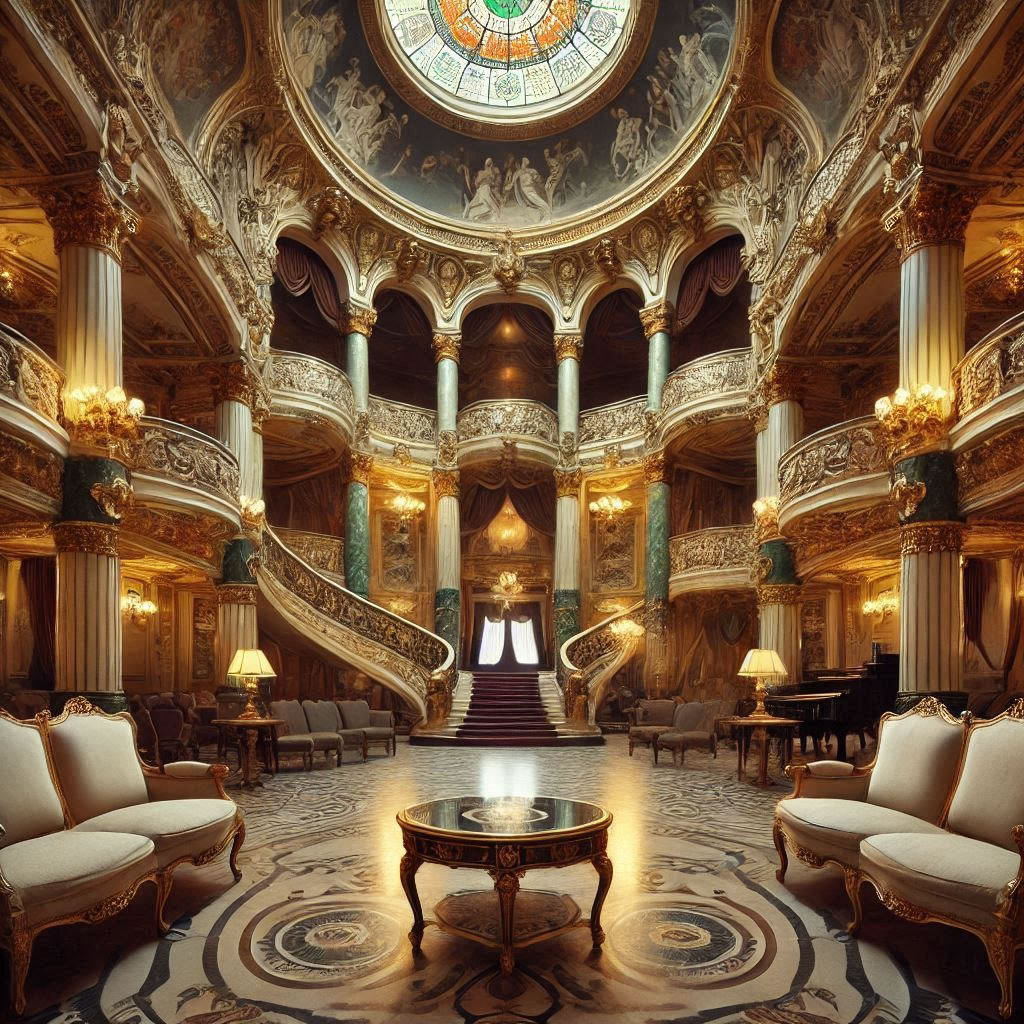
Versione italiana
Teatro, museo per l’anima!
“Contaminazioni“, la sezione dedicata a persone ed aspetti apparentemente lontani dal nostro ambito di studio e di confronto, si regala, ancora una volta, un colloquio con una professionista del teatro, convinti come siamo che tra musei e teatro molto vi sia in comune, tanto da farci pensare il teatro come un museo, una dimensione attraverso la quale trarre ispirazioni per le nostre esistenze.
A cura della redazione scientifica di Network Museum
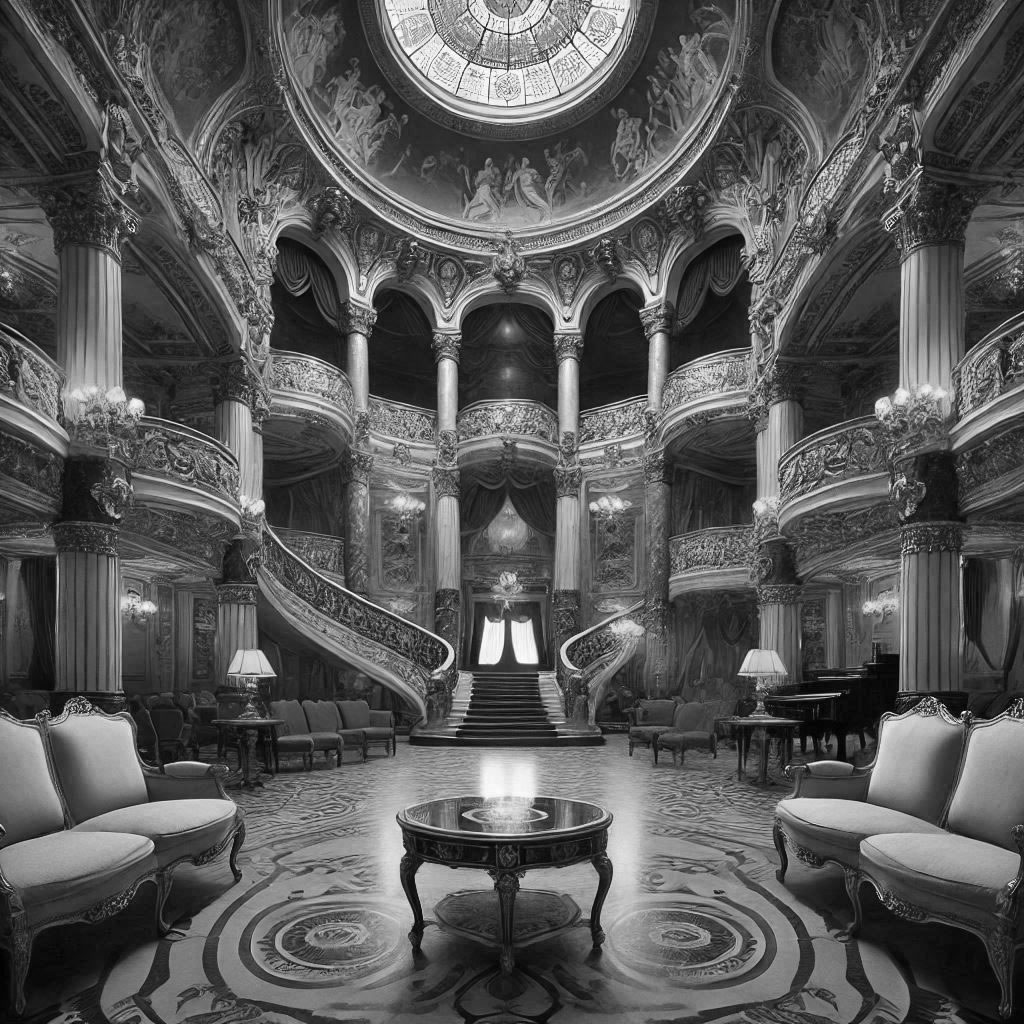
La celebrazione è un aspetto fondamentale della nostra vita. Il termine deriva dal latino “celebratio”, che a sua volta proviene dal verbo “celebrare”, il cui significato è “frequentare in gran numero”, “onorare”, “festeggiare”, che è possibile accostare ad un altro termine latino, “celeber”, che significa “affollato”, “rinomato”. È interessante come da questo banale abbozzo di ragionamento pseudo-esegetico si possa evidenziare una delle caratteristiche peculiari del modo di comunicare della nostra specie: il raggiungimento e la condivisione del maggior numero possibile di soggetti secondo uno schema rituale condiviso.
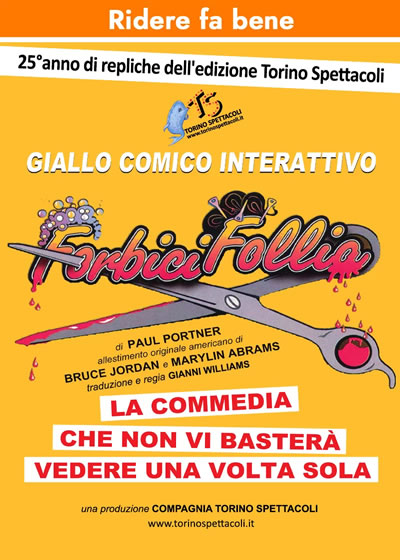
Possiamo dividere la collettività in dodici tribù o evidenziare i “like” in calce ad un testo posto su di un “social”, ma l’obiettivo e l’effetto non cambia. Già il Mago Silvan, in apertura del suo manuale per ragazzi, sosteneva, tanti anni fa, che “Saper eseguire un gioco di prestigio è molto, ma saperlo presentare è tutto!” (m.a.r. – memoria incerta degli anziani di redazione).
Quanto evidenziato sono aspetti della propagazione della comunicazione, anche quando la stessa si fa conoscenza, che sembra non possano essere trascurate. Ciò non significa che “tanto” sia bello o vero, ma che “tanto” (senza aggiungere alcun giudizio in merito) può essere assunto a riferimento. Le religioni nella storia, i nostri ordinamenti giuridico-governativi, ciò che determina le regole di convivenza non si fonda sulla “verità” o almeno sulla certezza, ma sull’opinione vastamente condivisa o, per convenienza di “abbastanza”, sopportata. Questo aspetto può produrre risultati curiosi. San Giovanni Evangelista scrive che Dio non è mai stato visto da nessuno, ma sono sufficienti una manciata di milioni di opinioni sull’esistenza dello stesso per fondare una repubblica islamica ed influire, a volte anche in modo cruento, su vite e destini.
Ed il teatro? Fermo restando la verifica, volta per volta, degli effetti sull’evoluzione della nostra collettività dei risultati della comunicazione, siamo attratti dal paradigma con cui la stessa si propaga, o meglio, si legittima. I musei, come i teatri, “celebrano” attraverso liturgie ben specifiche e per “masse”, anche quando queste sono rappresentate dalla totalità di soggetti appartenenti a gruppi ristretti e definiti da peculiarità non diffuse. Il risultato che se ne deve attendere è l’essere “celebri”, ovvero conosciuti, rinomati, frequentati, affollati. Le chiese cristiane ne sono sempre state un esempio, anche se ciò, sovente, ha avuto poco a che spartire con la fede.
Ripetiamo che questo è un affascinante esercizio di osservazione, non una tribuna attraverso la quale giudicare. Tale comportamento comunicativo sembra rimanere invariato nei millenni e pare, altresì, essere uno dei motori per la propagazione della conoscenza (ambito ragione d’essere del nostro istituto) estremamente efficace. Se a tali caratteristiche sommiamo l’ottenimento e l’accumulo di energia monetaria, attraverso l’effetto moltiplicatore che la collettività esercita a beneficio di pochi, avremo molto su cui riflettere sulle potenzialità, nel bene e nel male, di un sistema di propagazione simile.
Procedendo nell’approfondimento di tale sistema possiamo registrare simmetrie e complementarietà tra teatro e musei, che potrebbero costituire tecniche validissime per il miglioramento sia nel processo di acquisizione nozionistica sia in quello della “interiorizzazione” e della “consapevolezza” del rapporto con la conoscenza propagata sia a livello collettivo che individuale.
Abbiamo ragionato su questo e su altro con Elena Soffiato, attrice, cantante e docente di recitazione, in scena proprio in questi giorni nei teatri torinesi.

Elena Soffiato
Elena Soffiato è un’attrice di teatro italiana, cantante e docente di recitazione, diplomata nella Scuola di Teatro Giuseppe Erba di Torino. È una professionista nota anche per la sua carriera di lunga data come beniamina primattrice nella Compagnia Stabile di Pubblico Interesse Torino Spettacoli.
Ha recitato come protagonista in numerose e diverse produzioni teatrali di successo sempre in scena in spettacoli a lunga tenuta, dimostrando versatilità e talento. Lo spettacolo che l’ha resa famosa fin da giovanissima è il giallo-comico-interattivo, record di repliche ed incassi ,“Forbici Follia” , in scena ancora oggi. Da lì la sua carriera decolla grazie alla sua grande capacità di interpretare ruoli diversi anche caratterizzanti, spaziando dalla commedia, al dramma, dai gialli, al musical, per giungere all’operetta, rendendola un’attrice capace di suscitare emozioni brillanti ed autentiche, originando una connessione profonda con il pubblico.
Network Museum – Cos’è la cultura ed a cosa serve?
Elena Soffiato – La cultura è ancora fortunatamente la luce che illumina le menti in un mondo che forse corre troppo veloce e non si sa bene dove vada. È la nostra pausa, il respiro, l’identità profonda dell’uomo, ci invita ad esplorare, allena la sensibilità per la vera bellezza, è l’eco di un passato che vive ma anche il seme di un futuro che crescerà.
Network Museum – Cos’è un museo ed a cosa serve?
Elena Soffiato – Ho sempre immaginato fin da ragazzina che il museo fosse come una macchina del tempo e che custodisse la nostra memoria collettiva. Qui il visitatore diventa un viaggiatore, contemplando opere d’arte ed oggetti, che raccontano di vite vissute, di passioni ardenti e di ingegni creativi, attraversando, così, le epoche e le culture. È un luogo importante di apprendimento, di ispirazione e di scoperta, per tutte le generazioni.
Network Museum – Cosa significa il “teatro” per Elena Soffiato?
Elena Soffiato – Il Teatro per me è casa, è comprensione di un valore morale più alto, il luogo dove tutto ciò che immagino si può creare, un portale neutro dove posso essere, dove posso ascoltarmi e mettermi in contatto con la mia esistenza. È condivisione di idee, di sentimenti, di sensibilità. Diventa poi famiglia se hai la fortuna, come me, di avere colleghi con cui lavorare per anni e che diventano importanti come fratelli e sorelle. Il teatro per me è vocazione, il tempio dell’animo umano, uno specchio dove si riflette anche la vita stessa.
Network Museum – Cosa significa essere un’attrice di teatro?
Elena Soffiato – Significa interpretare con prontezza di spirito e di mente, portando in vita personaggi femminili spesso lontani da me e controversi, liberando la voce del pensiero di qualcun altro senza giudicarlo.
Essere un’attrice teatrale è un lavoro che richiede molta energia, devozione, sacrificio (“soprattutto se reciti sui tacchi alti per 2 ore ahaha“), ironia, una sensibilità interiore spiccata e sicuramente una combinazione di abilità artistiche, tecniche ed interpretative.
Il teatro richiede alle donne una presenza scenica forte e la capacità di coinvolgere ed affascinare il pubblico ma, nonostante i progressi, per quanto riguarda la rappresentanza e le opportunità per le donne nel teatro, persistono purtroppo ancora alcune difficoltà per le attrici che possono trovarsi a dover affrontare stereotipi di genere e ruoli limitati nel tempo che non riflettono la complessità delle esperienze femminili.
Network Museum – Quale relazione intercorre tra teatro e musei, secondo Elena Soffiato?
Elena Soffiato – Entrambi contribuiscono alla diffusione della cultura e rappresentano forme d’arte, ma lo fanno attraverso modalità differenti. Il teatro è performativo, dinamico e cambia ogni volta che viene rappresentato, creando un’interazione e un’esperienza unica, mai una energia uguale a se stessa, direi quasi “un prodotto artigianale” tra gli artisti e gli spettatori. Il museo è uno spazio conservativo, espositivo dove si custodisce materiale artistico e storico, permettendo, nel tempo, al pubblico un apprendimento più scolastico basato sull’esplorazione e la riflessione soggettiva senza l’immediatezza e l’interattività tipica che offre il teatro.
Network Museum – Si sente sempre di più parlare di teatralizzazione nelle attività museali? Cosa ne pensa?
Elena Soffiato – Sicuramente la teatralizzazione nelle attività museali è una ricetta vincente per la divulgazione e la promozione delle arti; può rendere l’esperienza museale più interattiva e memorabile, bilanciando il classico percorso basato, invece, sull’osservazione passiva. Questo genere di collaborazione però deve essere gestito dalle strutture e dagli enti con professionalità, attenzione e rispetto sia per il contenuto che per il contesto, riconoscendo il giusto valore lavorativo degli artisti e degli attori, anche dal punto di vista economico, perché voglio ricordare alla nostra cara Italia che l’arte è un lavoro.
Network Museum – Come considera, Elena Soffiato, il rapporto tra teatro e cultura?
Elena Soffiato – Il teatro è un cuore pulsante della cultura, capace di ispirare e rispecchiare le sfumature della società, fin dai tempi antichi attraverso l’orazione di storie e narrazioni locali. La comunità ha potuto riscoprire le proprie radici e valorizzarne l’unicità. Il teatro è tradizione ma anche evoluzione, non esiste cultura se passato e presente non si confrontano e non ne spingono avanti i confini ed il teatro serve a questo: portare l’animo dell’uomo oltre i confini delle convenzioni in libertà di pensiero.
Network Museum – Come potrebbe interagire il teatro con la cultura ed in particolare con i musei, con la scuola e con tutto il settore educativo? Per giungere a quali risultati?
Elena Soffiato – L’interazione del teatro con questi elementi potrebbe portare risultati significativi arricchendo l’apprendimento e l’esperienza sensoriale dei visitatori nei musei, nelle scuole, attraverso laboratori di recitazione professionali dedicati sia ad insegnati, per rendere più coinvolgenti le lezioni, sia per gli alunni, stimolandone la creatività, le emozioni e le abilità di comunicazione e coesione. Pare, a tal proposito, che gli studenti appaiano sempre meno empatici, proprio perché assorbiti ed ottenebrati dalla tecnologia passiva ed alienante. Si otterrebbero così risultati di maggiore interesse, sviluppo, creazione e rafforzamento della cultura e delle arti.
Network Museum – Come vede, Elena Soffiato, il futuro della cultura e, in particolare, quello relativo al ruolo dei musei?
Elena Soffiato – Vedo il futuro della cultura come un viaggio in continua evoluzione, dove la tecnologia se sapientemente usata e dosata, insieme alla contaminazione delle arti, renderebbe i musei degli spazi veramente belli, dinamici e interattivi. Vorrei vedere i musei non sono solo come custodi del passato, ma anche palcoscenici per esperienze viventi, dove il pubblico possa immergersi nella creatività, nelle storie e nelle emozioni, diventando protagonista attivo dell’arte e del proprio bagaglio conoscitivo, per trasformarsi in un tassello prezioso che completi, a sua volta, il mosaico del patrimonio culturale collettivo.
Network Museum – …ed il futuro di Elena Soffiato?
Elena Soffiato – Il mio futuro chissà…dipende senz’altro da tanti e vari fattori, tra cui i progetti che mi coinvolgeranno con la storica Compagnia Torino Spettacoli, le nuove opportunità che mi si presenteranno e la mia continua crescita professionale. Sicuramente il mio grande amore per il teatro è una fiamma viva e perenne. Sogno molti spettacoli e ruoli che non ho ancora avuto il piacere e l’onore di interpretare e poi ho un desiderio: che il teatro sia sempre accessibile a tutti…perché il teatro è di tutti!
Network Museum – Ora la domanda relativa al tema dell’anno. Come definirebbe un museo intelligente? Ed un teatro intelligente? Cosa pensa dell’intelligenza artificiale: ha mai duettato, per esempio, con una chatbot? Ne fruisce in qualche modo, come attrice teatrale?
Elena Soffiato – Un museo intelligente come ho già detto dovrebbe offrire esperienze immersive che rendono l’arte e la storia più accessibili e coinvolgenti, stimolando curiosità ed apprendimento. Il teatro intelligente ho avuto la fortuna di sperimentarlo già, recitando nello spettacolo “Forbici Follia” dove il pubblico non è solo spettatore, ma protagonista e può interagire con la “performance”, influenzandone la narrazione e vivendo così una esperienza unica. L’intelligenza artificiale può essere sicuramente utile se gestita a scopo benefico e regolamentata, ma se cadrà in mani sbagliate credo bisognerà davvero averne paura. Non amo rapportarmi con le macchine ed uso la tecnologia con limitazione per scelta. Non ho avuto bisogno per ora di consultare una chatbot come attrice teatrale e non saprei come potrebbe essermi utile nel mio lavoro, quindi direi che per adesso vivo bene e tranquillamente senza.
© Copyright Infogestione
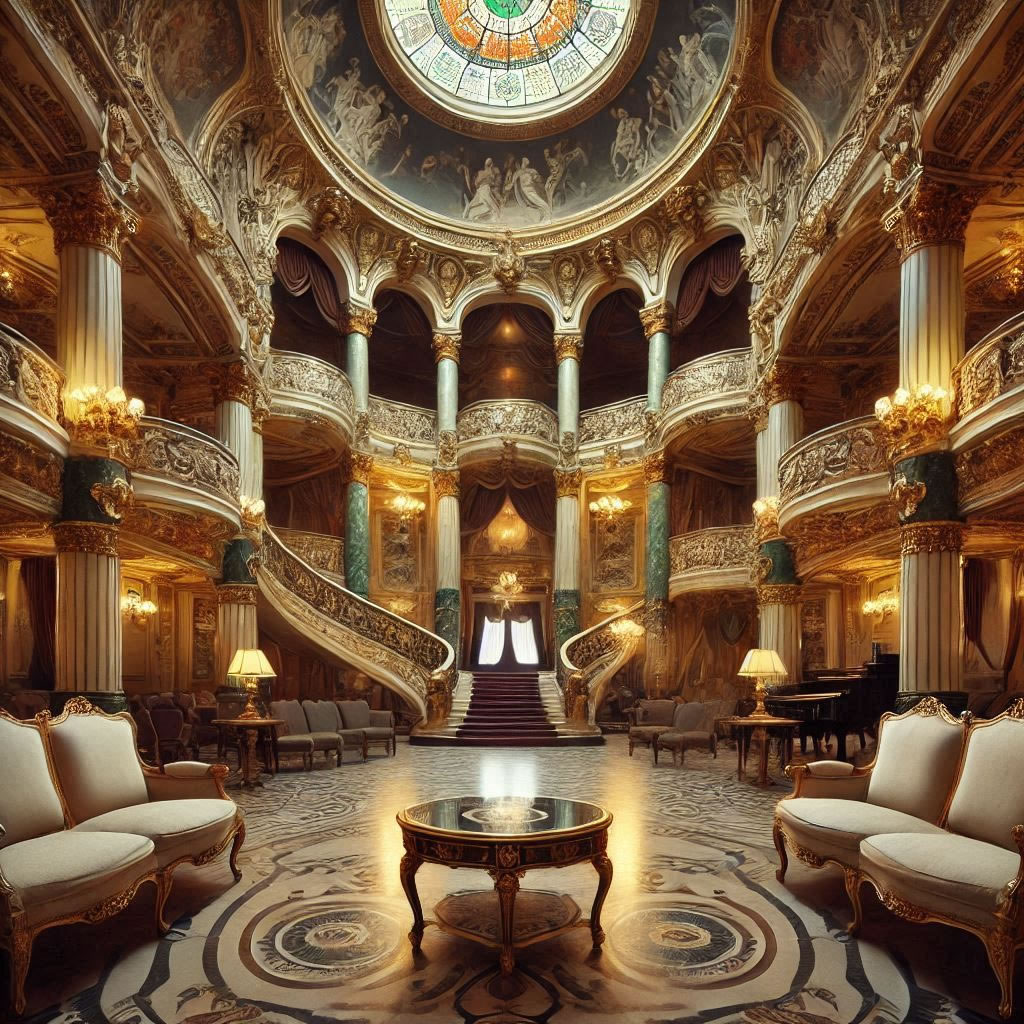
Coordinate di questa pagina, fonti, collegamenti ed approfondimenti.
Titolo: “Teatro, museo per l’anima!”
Sezione: “Contaminazioni”
Autore: Network Museum
Ospite: Elena Soffiato
Codice: INMNET2412271500MAN/A1
Ultimo aggiornamento: 27/12/2024
Pubblicazione in rete: 6° stagione, 27/12/2024
Proprietà intellettuale: INFOGESTIONE s.a.s
Fonte contenuti: INFOGESTIONE – Network Museum
Fonte immagini:
– Copilot
– https://www.torinospettacoli.com/spettacoli/forbici-follia-25/
Fonte video e contenuti multimediali: –
Collegamenti per approfondimenti inerenti al tema: –
